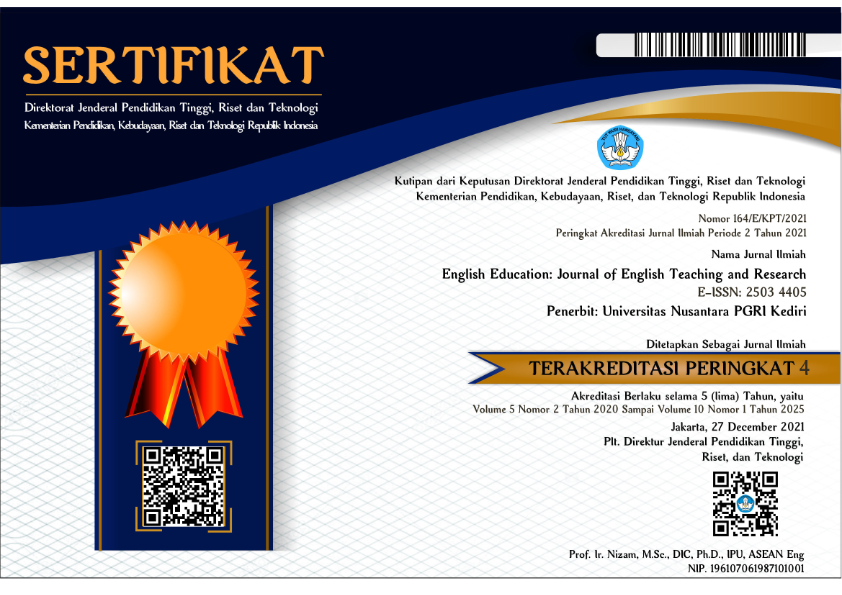A CORPUS LINGUISTICS INVESTIGATION OF TWO NEAR-SYNONYMOUS WORDS: RICH AND WEALTHY
DOI:
https://doi.org/10.29407/jetar.v3i2.12568Abstract
Many language learners, even language teachers, consider two words are synonymous. In fact, some words are not really synonymous. This sometimes triggers questions among language learners. They are confused whether two considered-synonymous words can be used interchangebly in certain contexts. Their confusion will appear more when they should describe something. Therefore, this study tries to find out phenomena around two words which are considered synonymous, namely rich and wealthy. Using British National Corpus (BNC) as the data which were analysed using the software Sketch Engine (SkE), this corpus linguistics based study found out that rich and wealthy are near-synonyms because they have identical sense but they are not substitutable for certain contexts. In addition, rich is more commonly used by people to describe both human and non-human beings. The results of the study imply that corpus linguistics provide benefits for English language teaching as we can really analyse language using authentic facts compiled in a corpus. A language teacher can also use corpus linguistics to teach vocabulary. In addition, a sociolinguistics phenomenon found out in this study implies that investigating two considered-synonymous adjectives can help language learners understand how people use the adjectives in socialising with other people.
Keywords: Corpus Linguistics, near synonyms, British National Corpus, Sketch Engine
Downloads
Downloads
Published
Issue
Section
License
Authors who publish with this journal agree to the following terms:
- Copyright on any article is retained by the author(s).
- The author grants the journal, the right of first publication with the work simultaneously licensed under a Creative Commons Attribution License that allows others to share the work with an acknowledgment of the work’s authorship and initial publication in this journal.
- Authors are able to enter into separate, additional contractual arrangements for the non-exclusive distribution of the journal’s published version of the work (e.g., post it to an institutional repository or publish it in a book), with an acknowledgment of its initial publication in this journal.
- Authors are permitted and encouraged to post their work online (e.g., in institutional repositories or on their website) prior to and during the submission process, as it can lead to productive exchanges, as well as earlier and greater citation of published work.
- The article and any associated published material is distributed under the Creative Commons Attribution-ShareAlike 4.0 International License








 Article template
Article template



